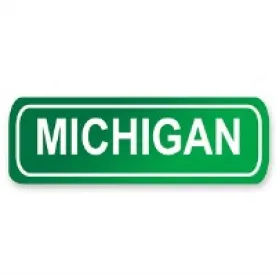Beginning May 7, 2020 the construction industry and certain other real estate businesses may resume in-person operations in Michigan under the conditions set forth in Gov. Whitmer’s Executive Order 2020-70 (the Order). The Order replaces and updates the prior Stay Home, Stay Safe orders issued by the governor in March and April 2020 (collectively, the former orders). While most of the stay-at-home restrictions implemented under the former orders remain in place, workers in the construction industry and related building trades – along with real estate brokers, appraisers, inspectors, surveyors and others – are now included in the growing list of resumed activities that may be conducted in person in Michigan. Such activities are not completely without restriction, however.
As noted below, the Order applies only to certain specified construction- and real estate-oriented businesses, and it imposes very specific restrictions on those that resume in-person operations.
What specific businesses or workers are affected?
- Workers in the construction industry, including workers in the building trades (plumbers, electricians, HVAC technicians and similar workers);
- Workers in the real estate industry, including agents, appraisers, brokers, inspectors, surveyor, and registers of deeds;
- Workers who perform work that is traditionally and primarily performed outdoors (including forestry workers, outdoor power equipment technicians, parking enforcement workers and similar workers); and
- Workers necessary to the manufacture of goods that support workplace modification to forestall the spread of COVID-19.
What restrictions must those businesses follow?
In addition to the restrictions applicable to all in-person operations permitted under the former orders (summarized here and here), these businesses must follow certain additional restrictions while the Order remains in place (currently until May 15, 2020):
1. Businesses in the real estate industries described at item (ii) above must limit the number of people that are present at any given time. Specifically, any showings, inspections, appraisals, photography/videography and final walk-throughs must be by appointment only, and no more than four people may be on the premises at one time. The Order prohibits in-person open houses and certain types of private showings.
2. Construction and the building trades described at item (i) above must abide by a number of new restrictions. As further detailed in the Order, such businesses must:
- Prohibit gatherings of any size in which people cannot maintain six feet of distance from one another and limit in-person interaction with clients and patrons to the maximum extent possible.
- Provide personal protective equipment (PPE) such as gloves, goggles, face shields and face masks as appropriate for the activity being performed.
- Adopt protocols to limit the sharing of tools and equipment to the maximum extent possible, and to ensure frequent and thorough cleaning of tools, equipment and frequently touched surfaces.
- Designate a site-specific supervisor to monitor and oversee the implementation of the business’s COVID-19 preparation and response plan (as required under the former orders). The supervisor must remain onsite at all times during activities. An onsite worker may be designated to perform the supervisory role.
- Conduct a daily entry screening protocol for workers and visitors entering the worksite, including a questionnaire covering symptoms and exposure to people with possible COVID-19, together with a temperature screening if possible.
- Create dedicated entry point(s) at every worksite, if possible, for daily screening as provided above or, in the alternative, issue stickers or other indicators to workers to show that they received a screening before entering the worksite that day.
- Require face shields or masks to be worn when workers cannot consistently maintain six feet of separation from other workers.
- Provide instructions for the distribution of PPE and designate onsite locations for soiled masks.
- Encourage or require the use of work gloves, as appropriate, to prevent skin contact with contaminated surfaces.
- Identify choke points and high-risk areas where workers must stand near one another (such as hallways, hoists and elevators, break areas, water stations and buses) and control their access and use (including through physical barriers) so that social distancing is maintained.
- Ensure there are sufficient hand-washing or hand-sanitizing stations at the worksite to enable easy access by workers.
- Notify contractors (if a subcontractor) or owners (if a contractor) of any confirmed COVID-19 cases among workers at the worksite.
- Restrict unnecessary movement between project sites.
- Create protocols for minimizing personal contact upon delivery of materials to the worksite.
What’s Not Covered?
Notably, while the Order specifically applies to the construction industry and the building trades referenced above, it is unclear whether the vendors needed to supply construction materials are also permitted to resume in-person operations. As noted in our prior advisory, the Order contemplates the supply chain needs of critical infrastructure businesses, but it does not clearly address the needs of resumed activities work like construction. Varnum is in contact with the governor’s office on this point, and we remain hopeful that it will be addressed in future orders.
Furthermore, the Order continues to rely on the original version of the federal Department of Homeland Security/CISA guidance incorporated into the former orders. Unlike nearly all other states, Michigan has elected not to adopt the newer, more expansive versions of that guidance in its stay-at-home order. This means that the critical infrastructure in Michigan is defined more narrowly than most other states.





 />i
/>i

